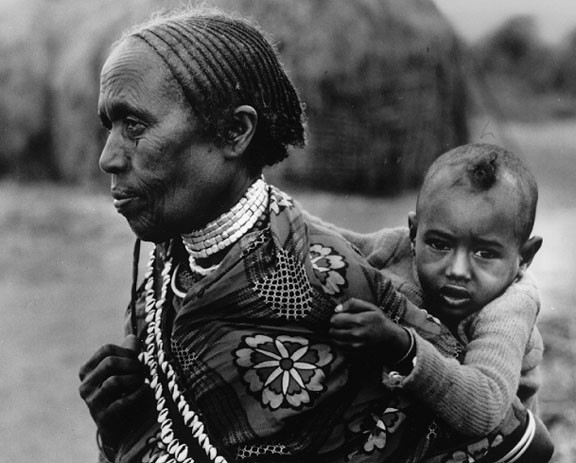New research reveals how grandmas are surprisingly responsible for the formation of monogamous bonds between men and women.
This new study was led by anthropologist Kristen Hawkes from the University of Utah who also thought of a prior "grandmother hypothesis" where it involves grandmothering being the cause of longer human lifespan. The researchers then utilized computer simulations where this grandmothering also produce a greater number of older and fertile male population.
If there are more fertile males running around, this can lead to higher competition among males where they are compelled to guard their female mate and also to forge a "pair bond" with her as opposed to mating with various, multitude of partners.
Researchers conclude that grandmothers played a crucial role in the development of these pair bonds. Hawkes revealed that humans apparently possess longer lifespans compared to our closest evolutionary counterparts which is the great ape, even if human female fertility also has the same span with the apes.
This grandmother hypothesis also involves human postmenopausal longevity that has evolved alongside with our ancestors since young offspring cannot obtain food for themselves.This means that kids have become dependent after weaning where the grandmothers' role is to help feed them, allowing mothers to produce more babies sooner.
This is also pivotal to the longevity of the family lineage, meaning, if grandmothers can live longer, the more opportunities they can help their descendants live longer. This will result in more competition as males become more prone to guard a female and to father more offspring than to constantly seek for another mate.
Traditionally, monogamous, pair bondings that evolved in humans was linked to male hunters being able to provide food for females and their offspring where in exchange, they receive paternity over their children in order to have more descendants. The grandmother hypothesis however, says otherwise.
Hawkes says that females gain the advantage of having more babies earlier in life not because of a male provider but because of grandmothers helping in feeding their offspring, that increases longevity. These new findings are suggesting that prehistoric grandmas are responsible for longevity of generations of families and at the same time, committed relationships too.
This new study is published in the journal Proceedings of the National Academy of Sciences.


